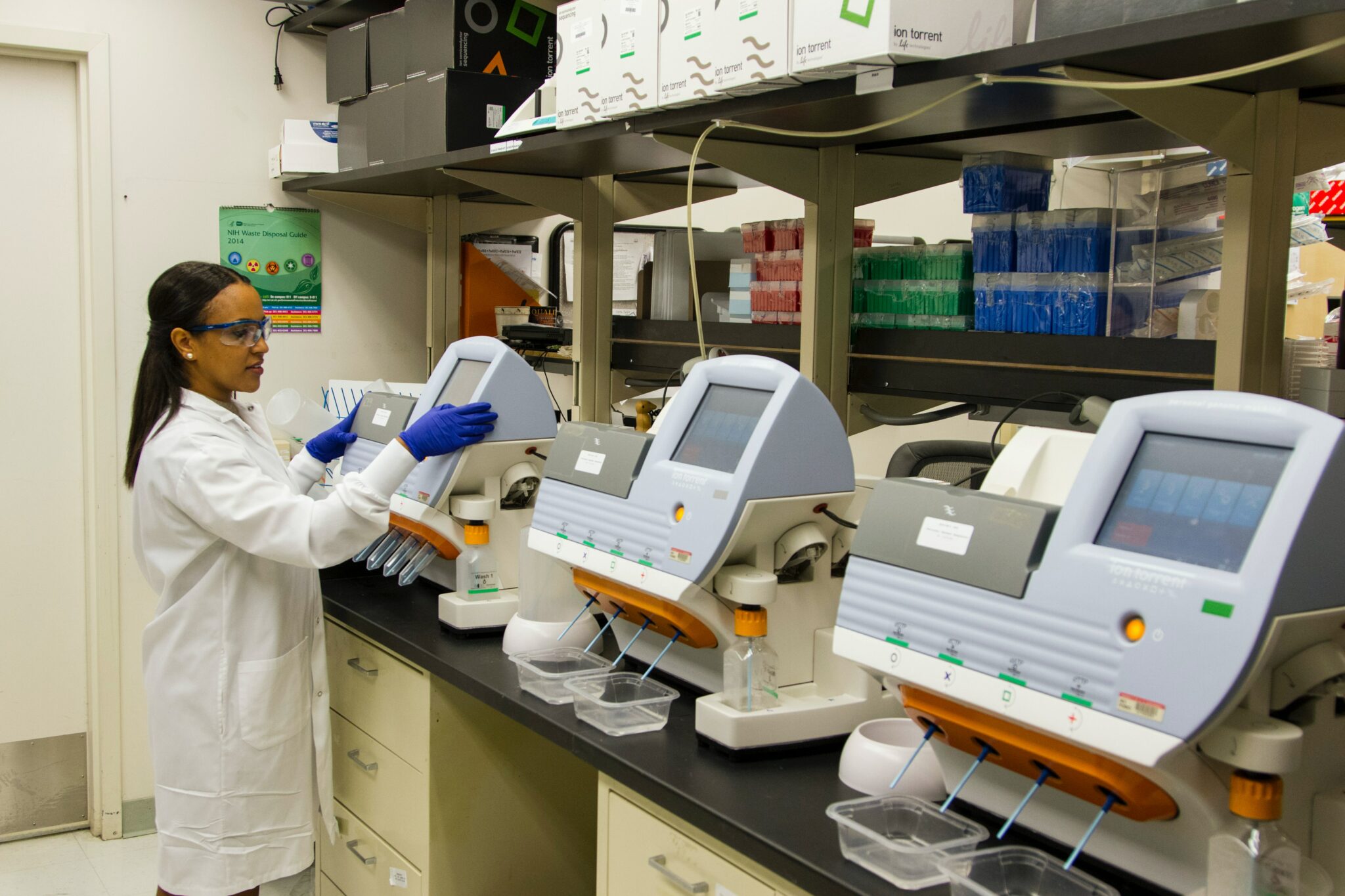In 2017, approximately 12 million women were business owners, employing over 10 million people with almost $390 million in payroll, according to the SBA Office of Advocacy. Various loan programs for small businesses exist but limits are generally around $50,000. According to Entrepreneur, less than 50 percent of loans to women’s businesses of any size get approved, which is 15-20 percent less than men. VCs provide less than 7 percent of their funding capital to women startups. The odds are certainly stacked against female founders in any industry, and even more so in the fields of healthcare, technology and sciences. These setbacks rarely intimidate women business owners, though the uphill battle to find adequate funding to fuel further innovation is continuously challenging.
As my business partner and I launched our biotech startup CoLabs, we were well aware of the challenges women in our industry face. We knew our technology solved a significant problem within the over-the-counter (OTC), veterinary, agricultural and pharmaceuticals markets. With our patented QuantaSphere microencapsulation technology, we can successfully target delivery while preventing the unwanted absorption of chemicals into the body or uncontrolled dispersion of chemicals into the environment. Our innovative formulations ensure that drug and chemical applications are designed to remain on their target site to effectively treat, and heal, while limiting systemic absorption. The result is safer and more effective pharmaceutical and OTC products.

With the potential for this to be a widely utilized technology, we are still navigating our way through the funding maze as two female founders. Along the way, we have found these three best practices that have allowed us to continue our momentum.
Stand Behind Your Tech and Provide Real-Life Use Cases
CoLabs is often inadvertently and mistakenly viewed as a cosmetics or skincare company. We’re a pharma and biotech company, and we lead each presentation to effectively dismantle that misconception. It’s important to us, as it is for all female founders, to effectively stand behind the hard work we’ve put into our innovation in this male-dominated field. Throughout multiple presentations of our technology and its various applications, we have stayed steadfast to showcase its need in providing effective topical delivery solutions. My cofounder and I stay true to our founding mission: Drug and chemical applications of any kind should remain at their target site for treatment and not be inadvertently absorbed and distributed elsewhere.
In standing firmly to your business and technology, and the industries you can serve, you’ll be better positioned against pressures to realign to a strategy that doesn’t match your core mission. With this approach, CoLabs has been able to more effectively speak to investment bankers and venture capital groups to showcase exactly how our microencapsulates, the size of skin cells, can be loaded with active ingredients to function with greater efficacy. It’s a scientific achievement, not a cosmetic.

Build Your Network and Your Professional Community
Don’t underestimate the power of building up your own network within your professional community. My business partner and I spent time cultivating a network in the biotech space. In doing so, we were able to get our technology in front of those with a scientific and medical background and therefore can appreciate the importance of such a technology, without gender bias. Connecting with like-minded professionals can open the door to new opportunities, strategic partnerships and constructive feedback. Our funding has been achieved through referrals through this growing network of individuals.
Look Beyond Traditional VC Routes to Fund Your Company
For female-led biotechs, and those in other categories across healthcare, technology and sciences, knowing all your options for funding will open new doors to gain access to capital. Startups have typically relied on the likes of venture capital firms to fund their innovation and growth. Many of those investments arrive with expectations for fast growth and fast returns that startups can’t sustain. There are other options to explore. For CoLabs, we knew our technology would have broad appeal with its various use cases across not only skincare and pharmaceuticals, but also veterinary care, agricultural herbicide and global pest control. We decided to go to the crowd, opening up equity shares of our company to all who believed in the technology and in our mission. Through an initial Regulation D offering, our startup was able to put our business model in front of accredited investors and grow the company through the initial technology development and IP phase of our growth. Now, with the newly launched Regulation A offering, CoLabs is providing access for types of investors—accredited and non-accredited—to participate in the equity growth of CoLabs. This is just one example of the alternate routes available to founders to access growth funding. Researching the various funding sources might uncover some unique opportunities to open necessary doors to meet the needs of your company.
Female founders in healthcare/pharma, science and technology are paving the way with new innovations that are solving real problems. While there are still hurdles we’re working through, we can continue our work to change the narrative in our success by standing true to our mission and our technologies, building out a strong network of support with like-minded individuals and identifying new routes to grow our business that go beyond the traditional VCs.
Lisa LeBlanc is cofounder and chief operations officer for CoLabs Int’l, Corp., a biotech firm that has created a patented microencapsulation technology, QuantaSphereâ, which is being utilized to help prevent the absorption of unwanted chemicals into the body. Lisa founded CoLabs with her mother, Dr. Laura Cohen M.D., a board-certified dermatologist, and CEO of CoLabs. As COO, Lisa oversees retail and wholesale channels of distribution, operational management of product products, logistical operations for manufacturing and all domestic and international carriage.






